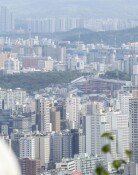Biz leaders pledge $2 tln in trade, $30,000 in per capita income
Biz leaders pledge $2 tln in trade, $30,000 in per capita income
Posted December. 31, 2011 04:32,
In their New Years messages released Friday, the heads of major economic organizations pledged to build on the momentum of the country`s 1 trillion U.S. dollars in combined trade in 2011 and continue consolidating a strong national economy in 2012.
They also urged economic players to join forces to overcome crisis amid the challenging environment, including external factors such as the global financial crisis and political instability in North Korea and internal factors such as the general elections and presidential election next year.
Hur Chang-soo, chairman of the Federation of Korean Industries, said, Koreas economic growth has slowed significantly amid the slumping global economy, while domestic consumption looks less than promising due to household debts of 900 trillion won (700 billion dollars) and fears over unemployment, adding, For the Korean economy to achieve its purported goals, all the people must join forces, and more than anyone else, entrepreneurs should take the lead.
Business leaders also urged against populism in the wake of the year of politics, when the two most important elections in Korea will take place.
Sohn Kyung-shik, chairman of the Korea Chamber of Commerce and Industry, said, We all must make concerted efforts and remain vigilant to ensure that the economy is not influenced by political interest and populist ideology ahead of the elections, adding, The government should maintain consistency and credibility in various policies, including those on taxation, finance, labor-management relations, and fair trade, and dispel uncertainty to enable companies to invest and create jobs without concern.
Lee Hee-beom, chairman of the Korea Employers Federation, said, Chances are high that the market economy system and growth potential could be damaged due to the readjustment of the Labor Union Act and countless regulatory policies on businesses. Populist welfare policies such as free school meals and halved college tuition fees due to pork-barrel measures pledged by the political circle have been presented en masse. All economic parties should overcome the lure of populist ideology and push for regulatory reform to lay the foundation to increase investment and create jobs.
Sakong Il, who spearheaded Koreas efforts to achieve 1 trillion dollars in combined trade in 2011, urged reinforcement of export competitiveness. We must step up our pace anew toward achieving 2 trillion dollars in trade and 30,000 dollars in per capita income, adding, By developing the service industry, in which Korea ranks 15th in the world, we should create quality jobs and make the most of our newfound economic territories created through free trade agreements with the European Union, ASEAN, India and the U.S.
Kim Ki-moon, chairman of the Korea Federation of Small and Medium Businesses, said that to mark its 50th anniversary, the organization will prepare for the next 100 years and fulfill its corporate social responsibility comparable to that of conglomerates. We must expand the system of industries suitable for small and medium-size enterprises to include distribution and service sectors, and I will lower the three major commission fees for credit cards, department stores and banks that smaller companies pay to acceptable levels.
foryou@donga.com







